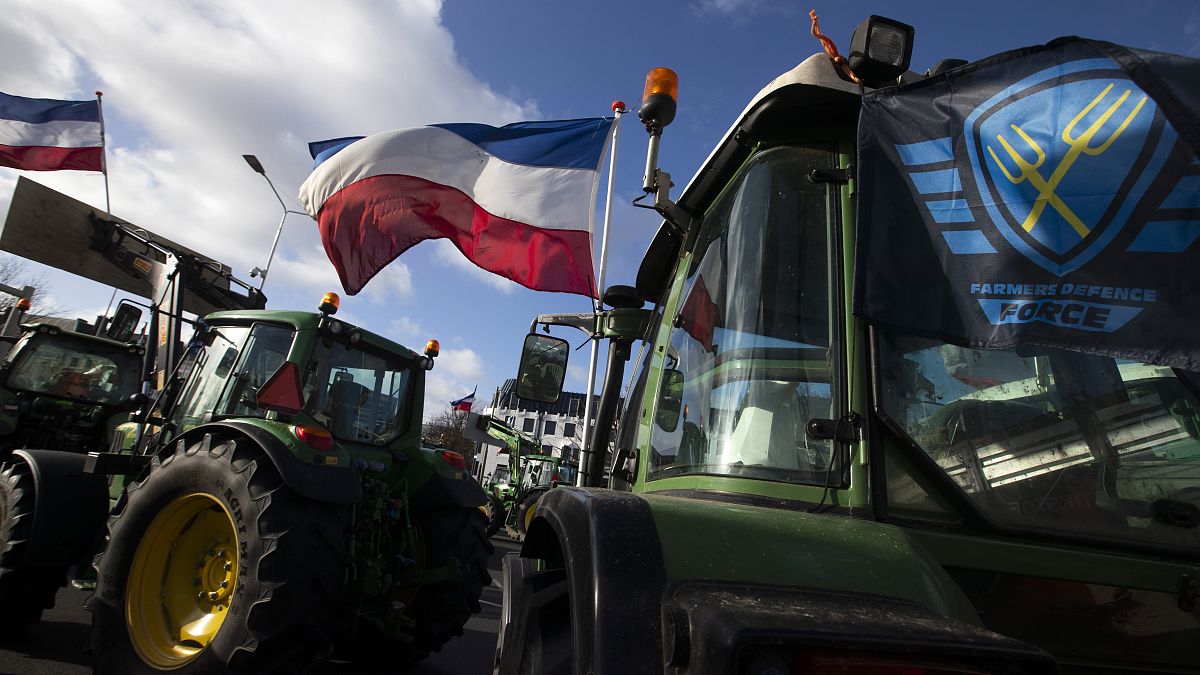In a country of less than 18 million people and more than 116 million livestock, agriculture reigns supreme.
As the world's second-largest exporter of agricultural products, along with half of its land being devoted to agriculture, the Netherlands is widely considered an agri-food superpower despite its tiny size.
But this, in its own right, creates problems. Namely, nitrogen emissions.
In high concentrations, the chemical element is dangerous for both nature and water quality, and in 2019 a pollution crisis led the Dutch government to set a goal of halving emissions from the gas by 2030.
This, of course, set itself on a collision course with the Dutch farming establishment, given that almost all human activities produce it, but in the Netherlands agriculture is the biggest culprit, responsible for 50% of all nitrogen.
"Basically, here in the Netherlands, there are two big reasons why we have a nitrogen problem for the first time, and it's because we are a very densely populated area and we have the densest livestock concentration in Europe," Daan Boezeman from the Netherlands Environmental Assessment Agency said in an interview with Euronews.
"On the other hand, the Netherlands has taken a rather strict interpretation of the European Habitats Directive, which stipulates that for every new kind of activity, we have to realise nitrogen reduction elsewhere."
Dutch farmers are required to reduce their nitrogen footprint or sell their properties to the Dutch state, which put in place a voluntary “buyout scheme”, with a budget of €8 billion.
However, the scheme has not been very popular.
According to Jan Arie Koorevaar, who owns 115 cows on a 90-hectare property in South Holland and produces 100 million litres of milk per year in an almost 100% organic way, the government should focus more on boosting innovation, rather than reducing the size of farms.
"A lot of farmers are worried because it's not clear to them what they need to do on their farms to meet the demands of the government," Koorevaar told Euronews.
"I think there are also possibilities to reduce emissions for dairy farmers as well. If you can help them with the funding to reduce them with technological innovations, but we do not have that type of measure yet.
"And the other thing would be that the government helps to make your farm more extensive. So, helping, for instance, with the availability of land."
But the issue has turned controversial ahead of the country’s elections next week.
While farmers are pushing back against the current provisions, some parties and environmental associations want even more. They’re asking for mandatory buyouts, instead of voluntary ones, halving emissions by 2030, and stricter targets on livestock reduction.
"We demand that the government helps farmers make the transition to ecological farming with 70% fewer animals in 2030 and 80% fewer in 2050, and actually help farmers or help the market set up a system in such a way that the farmer also has a good income, producing food for humans instead of a lot of food for animals," Hilde Anna de Vries from Greenpeace Netherlands said.
